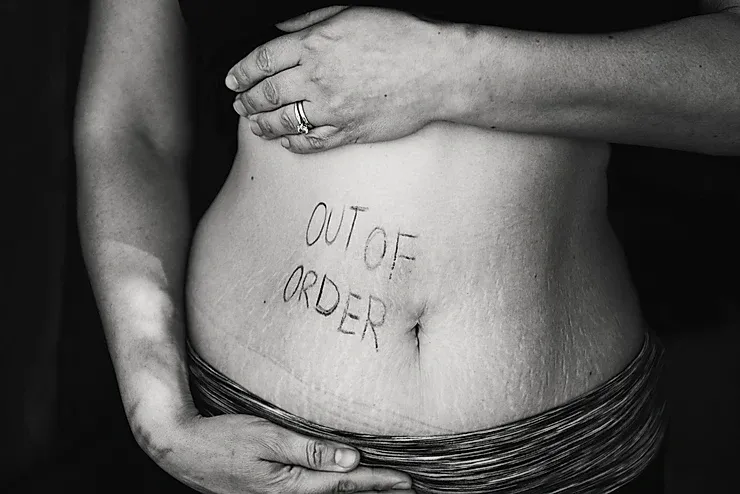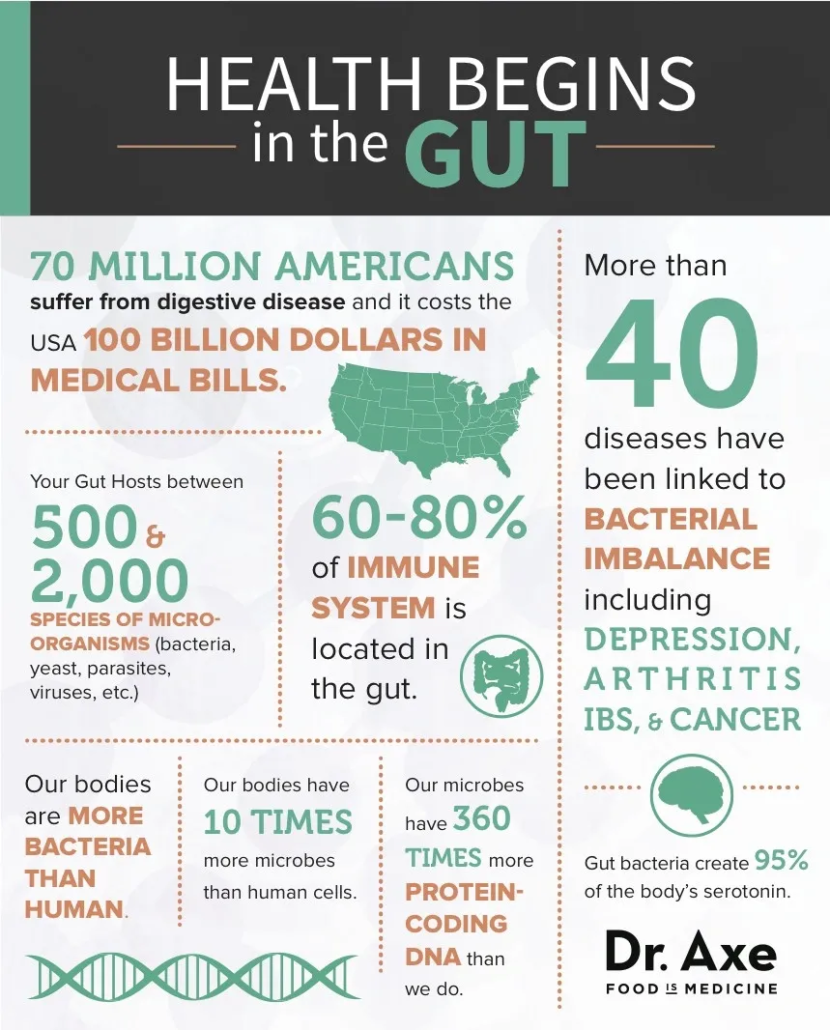Top 20 Stress-Busting Foods
“Stress is the trash of modern life – we all generate it, but if you don’t dispose of it properly, it will pile up and overtake your life.” ― Danzae Pace
Did you know that deep in your gut lies a highly sophisticated network made up of hundreds of millions of nerve cells and neurons?
The stomach, as well as the small and large intestine, collectively form what’s known as the gut. And inside the layers of your gut, you’ll find that amazingly complex neural network.
What’s even more amazing is that this superhighway inside your gut directly connects to your central nervous system.
Structurally speaking, this network is roughly the same as a cat’s brain. And there’s enough neuron diversity to rival that of a pig’s brain.
This is what doctors call the enteric nervous system (ENS). While this “little brain” inside your gut shares a connection with your big brain, it also works independently.
The ENS quietly runs show the down below, telling your digestive system what to do. It’s in charge of crucial metabolic functions that help you break down food and utilize their energy.
Furthermore, this little brain also controls your gut barrier which is a layer of mucus, acid, enzymes, a protective cell wall and trillions of friendly bacteria. This layer is your first line of defense against unfriendly invaders like toxic substances or bacteria.
On a broader scale, most folks don’t realize nor appreciate the incredibly complicated processes happening in this crucial region.
For one thing, they don’t understand the effect of specific foods on their gut.
What we eat is ultimately absorbed in that region, creating a chain reaction in our body.
Certain types of food will set off a series of either positive or negative events which start at the gut. Soon enough, your brain and the rest of your body will feel the effects of your food choices.
Doctors previously thought that it was external stress that triggered gastrointestinal conditions like excessive gas, diarrhea and indigestion.
But recent research shows that the gut-brain connection is actually a two-way street.
So, whatevers going on in your gut can influence your entire physical being, along with your brain.
In fact, many experts believe that proper nutrition is the best way to address mental health issues like anxiety and depression.
Studies have confirmed this hidden connection between the gut and the brain…
…such as research by the Central Food Technological Research Institute in India, and the University of Bristol in the U.K.
According to them, changing the way you eat can have a profound effect on your mental well-being, and your life in general.
Happiness is a Gut Feeling
This has a lot to do with the fact that your gut produces a good chunk of happy chemicals such as dopamine and serotonin.
These are called neurotransmitters which are chiefly responsible for fighting feelings of hopelessness and depression.
As such, your body needs high-quality food to improve your emotional state. Whole, unprocessed foods contain specific compounds that make up the secret recipe to make you feel better.
It feeds friendly bacteria in your gut, which in turn, allows them to do their job and flood your system with those feel-good neurotransmitters.
Not only that, a balanced gut means better immunity (i.e., a stronger gut barrier) which adds up to a happier, healthier you.
Here are the Top 20 Superfoods to Keep Your Gut and Brain Happy:
#1: Asparagus
This vegetable is high in folic acid which can help relieve symptoms of depression. Asparagus also contains protein, vitamin A, thiamin, riboflavin, niacin, vitamin B6, vitamin C, vitamin K, calcium, magnesium and copper.
#2: Avocado
This fruit is rich in heart-friendly monounsaturated fat. It also contains vitamin B which benefits your nerves and brain cells, and reduces stress. Potassium helps by lowering your blood pressure.
#3: Almonds
This brain food is big on vitamins B2 and E. They strengthen immunity which is handy when you’re having a crazy week. Vitamin E fights inflammation, takes care of your heart and protects your skin from sun damage. It’s also linked to preventing Alzheimer’s disease too!
#4: Berries
Whether you fancy blackberries, blueberries, raspberries or strawberries, you can’t go wrong with these sweet treats. They fight stress with their antioxidants which slow down aging – and may even prevent cancer. They also promote good gut health and keep your blood sugar levels stable.
#5: Salmon
Omega-3 fatty acids are one of nature’s top antidepressants. They’re crucial for brain health and regulate stress-related hormones such as cortisol.
#6: Spinach
Leafy greens aren’t just great for dealing with oxidative stress, but also for making you feel like a million bucks. You have magnesium to thank for that – this mineral also keeps your stress hormones in check.
#7: Coconut
This superfood is rich in MCTs, or medium-chain triglycerides, which are an excellent fuel for your brain and body. It also has antioxidant properties which heal your immune system and protect your mind. Best of all, MCTs are excellent at improving your digestion and overall mood.
#8: Thyme
Thyme is a famous herb known for its healing effects, especially when it comes to respiratory conditions like bronchitis. It’s also known for fighting cancer because of its plant-based compound called carvacrol. Thyme is an excellent antidepressant as it promotes dopamine and serotonin production.
#9: Walnuts
Yet another omega 3-rich food, this brain-friendly nut is effective at fighting depression. Other benefits include lower risk of cancer, a healthier heart, and better weight control.
#10: Pumpkin Seeds
This one contains magnesium which reduces stress and anxiety by naturally decreasing muscle tension. It’s also rich in zinc, another mineral that keeps you cheerful and regulates your emotions.
#11: Eggs
Often labeled as “nature’s perfect food,” eggs are jam-packed with vitamins B12 and protein. They’re a great mood booster too, thanks to the L-Tryptophan and choline. These trigger the production of feel-good neurotransmitters like acetylcholine.
#12: Ghee
Also known as clarified butter, ghee is associated with ancient medicine. It can heal your gut and promote proper digestion, thanks mostly to butyric acid. Better digestion leads to a better emotional state – this makes ghee one of the top anti-depression foods.
#13: Kiwi Fruit
This is full of vitamin C which boosts immunity, along with zeaxanthin and lutein which are good for the eyes. It also improves digestion and helps you metabolize food more efficiently. Its antioxidants are great at reducing free radicals which accumulate from the stress from daily life.
#14: Turkey
Like the other amino acid-rich foods on this list, turkey promotes neurotransmitter production. This includes serotonin, which is a great mood-booster. If you’re wondering why everyone’s so chill after Thanksgiving, it just might be this famous holiday dish.
#15: Dark Chocolate
Chocolate in general is known to improve one’s emotional state, but the dark variety is healthier. It contains excellent antioxidants which fight cancer and help you feel better. Remember, the key is to consume this in moderate amounts to avoid spiking your blood sugar levels.
#16: Garlic
This is well-known cancer-fighting food, and it contains good stuff like phytonutrients and antioxidants. It’s also full of heart and brain-boosting minerals like calcium, iron, magnesium, manganese, potassium and zinc.
#17: Cashew Nuts
This makes for a tasty snack that does more than satisfy your taste buds. It also provides proper amounts of protein and zinc which reduces anxiety and stress.
#18: Yogurt
When it comes to good gut health, probiotics is the name of the game. This food is rich in friendly bacteria that benefits your gut. By having a serving of yogurt, you can replenish your all-important intestinal flora which is crucial to excellent digestion. Plus, a healthy gut allows your body to produce those neurotransmitters to keep you happy.
#19: Turmeric
This is an ancient spice that has potent healing properties. For instance, it’s effective at fighting free radicals which damage cells and cause cancer. It’s also rich in anti-inflammatory compounds – this is important in preventing anything from heart problems to brain disease like dementia.
Speaking of which, turmeric also slows down brain cell aging. This prevents conditions like Alzheimer’s as well as improve mental health.
#20: Cinnamon
The unique aroma from this spice has been known to reduce stress and anxiety. Not only that, a small amount of cinnamon packs a potent serving of antioxidants which lower the risk of cancer. Better yet, it’s also excellent at keeping your blood sugar levels stable. This, in turn, manages insulin production and prevent illnesses like diabetes and cancer.
Don’t let Stress (or Disease) Dictate Your Life
The sooner you make these foods a part of your regular diet, the easier you can manage your stress levels – especially during a crazy day.
However, it’s also crucial that you make changes to your general lifestyle, such as your eating habits.
And while eating these calming foods is the start of a healthier, low-stress lifestyle…
…it’s also vital to understand how our food choices affect us on a larger scale.
A reasonable, nourishing diet can provide you with the necessary nutrients, vitamins and minerals.
Not only does this help you beat anxiety, depression and high levels of stress – it also keeps serious problems at bay, like chronic systemic inflammation, autoimmune disease, type 2 diabetes and cancer.
Too often, we’re seduced by the allure of cheap, convenient processed food. They’re readily available and seem to fit our busy lives, but we’re overlooking its consequences.
Sugar-laden treats like donuts and soda, for instance, trigger conditions like insulin resistance which leads to obesity and other life-threatening issues.
Meanwhile, deep-fried fast food sends our triglyceride levels through the roof and pollute our bloodstream with harmful fats.
Most of us take these clear and present dangers for granted, and we’re paying a high price for it.


















